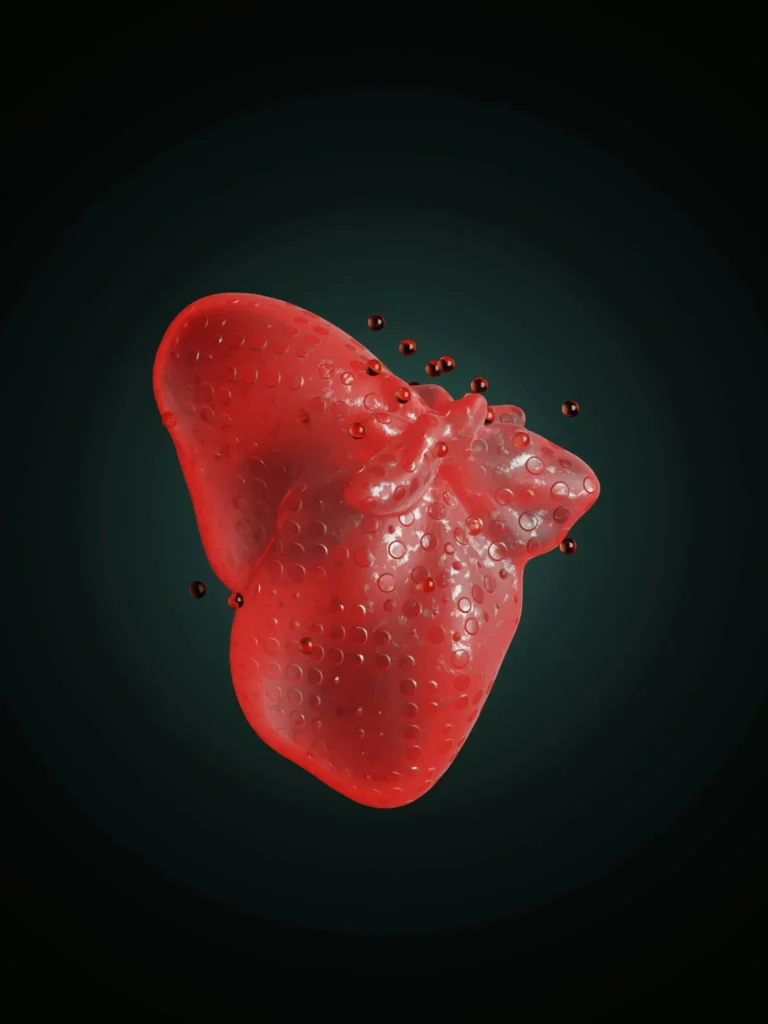
The Ultimate Guide to Improving Liver Performance: Tips and Tricks
The liver is one of the most important organs in the human body, responsible for a wide range of functions that are essential for overall health and well-being. From detoxifying the blood to producing bile for digestion, the liver plays a crucial role in keeping the body functioning properly. However, with the rise of unhealthy lifestyles and poor dietary choices, many people are putting their livers at risk of damage and dysfunction. In this comprehensive guide, we will explore the best tips and tricks for improving liver performance and keeping this vital organ healthy.
Understanding the Liver
Before we delve into ways to improve liver performance, it’s important to have a basic understanding of what the liver does and why it is so important for our health. The liver is the largest internal organ in the body, weighing about 3 pounds and located in the upper right side of the abdomen. It performs over 500 functions, including:
– Detoxifying harmful substances in the blood, such as alcohol and drugs
– Producing bile to help digest fats
– Breaking down and storing nutrients from food
– Regulating blood sugar levels
– Producing proteins that help with blood clotting
– Storing vitamins and minerals
Given its importance, it’s crucial to take care of your liver and ensure it is functioning optimally. Here are some tips and tricks to help improve liver performance:
1. Eat a Healthy Diet
One of the best ways to improve liver performance is by eating a healthy, balanced diet. Avoiding processed foods, sugary snacks, and excessive amounts of alcohol is key to keeping your liver healthy. Instead, focus on eating a diet rich in fruits, vegetables, whole grains, lean proteins, and healthy fats. Some foods that are particularly beneficial for the liver include:
– Garlic: Contains sulfur compounds that help activate liver enzymes
– Leafy greens: Rich in antioxidants that help protect the liver from damage
– Turmeric: Contains curcumin, a powerful anti-inflammatory compound that can help reduce liver inflammation
– Walnuts: High in omega-3 fatty acids, which can help reduce liver fat accumulation
2. Stay Hydrated
Drinking plenty of water is essential for overall health, including liver function. Water helps flush toxins out of the body and keeps the liver hydrated, allowing it to function properly. Aim to drink at least 8 glasses of water a day, and more if you are active or live in a hot climate.
3. Exercise Regularly
Regular exercise is important for maintaining a healthy liver, as it can help reduce the risk of fatty liver disease and improve liver function. Aim for at least 30 minutes of moderate exercise most days of the week, such as brisk walking, cycling, or swimming.
4. Limit Alcohol Consumption
Excessive alcohol consumption is one of the leading causes of liver damage, so it’s important to limit your intake. The recommended limits for alcohol consumption are no more than 1 drink per day for women and 2 drinks per day for men.
5. Avoid Smoking
Smoking is not only bad for your lungs, but it can also harm your liver. Smoking can increase the risk of liver cancer and other liver diseases, so it’s best to avoid it altogether.
6. Get Plenty of Sleep
Getting enough sleep is crucial for overall health, including liver function. Aim for 7-8 hours of quality sleep each night to allow your body to repair and regenerate.
7. Manage Stress
Chronic stress can have a negative impact on liver function, so it’s important to find ways to manage stress in your life. Practice relaxation techniques such as deep breathing, meditation, or yoga to help reduce stress levels.
8. Avoid Toxins
Exposure to environmental toxins can put a strain on the liver and increase the risk of liver damage. Try to avoid exposure to chemicals, pesticides, and other toxins whenever possible.
FAQs
Q: Can you reverse liver damage?
A: In some cases, liver damage can be reversed with lifestyle changes such as diet, exercise, and avoiding alcohol. However, severe liver damage may require medical intervention.
Q: Are liver detoxes safe?
A: Liver detoxes are not necessary for most people, as the liver is already equipped to detoxify the body on its own. Some detoxes may even be harmful, so it’s best to consult with a healthcare professional before starting any detox program.
Q: How can I tell if my liver is healthy?
A: Some signs of a healthy liver include clear skin, regular bowel movements, and normal energy levels. However, the best way to determine liver health is through blood tests and other diagnostic tools.
In conclusion, the liver is a vital organ that plays a crucial role in maintaining overall health. By following the tips and tricks outlined in this guide, you can improve liver performance and keep this important organ functioning optimally. Remember to eat a healthy diet, stay hydrated, exercise regularly, limit alcohol consumption, and manage stress to support liver health. If you have any concerns about your liver health, be sure to consult with a healthcare professional for personalized advice.